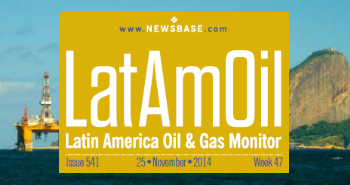Investigation indicates that companies with US ties are assisting Venezuelan fuel shipments
Two companies with ties to the US appear to be assisting Venezuela in transporting large amounts of petroleum products to the world market via an Iranian-built tanker, even though the US government restricts trade with both Iran and Venezuela, according to a report from the Associated Press.
One of the companies in question, known as Caribbean Petroleum Refinery, has an office in Houston, AP said. The other is owned by two US citizens who also hold Venezuelan citizenship, it stated.
Although the origin of the fuel has not been disclosed, the tanker that is being used to transport it, known as the Colon, has a history of travelling exclusively to Venezuelan ports. On September 28, for example, the Colon discharged 600,000 barrels of residual fuel oil at the Bullenbaai terminal, located on the central west coast of Curaçao.
The terminal is operated by Refineria di Korsou (RdK), Curacao’s state-owned refining company, in partnership with Caribbean Petroleum Refinery. The terminal is capable of storing up to 7mn barrels of petroleum products.
Curaçao’s apparent involvement in this scheme comes as a shock, particularly since the island country’s foreign relations are governed by the Netherlands, a staunch US ally. To date, both the Netherlands and Curaçao have exhibited a strong record of enforcing the United States sanctions against Venezuela, as was proved when Curaçao confiscated the unsold inventories of Venezuela’s national oil company PdVSA in 2019, after its lease expired.
Marshall Billingslea, a former senior US Treasury Department official who was involved in the drafting of Washington’s current Venezuelan sanctions policy, believes that Curaçao’s leadership may be willing to assist in the evasion of sanctions due to lax enforcement from the administration of US President Joe Biden.
“They’re flouting the sanctions because they know under this administration there are no consequences,” the former Treasury Department official claimed. Under the current sanctions, US entities are barred from conducting business with PdVSA. This sanction becomes more challenging to enforce, however, when the fuels in question have exchanged hands on multiple occasions, making them harder to track.


Follow us online